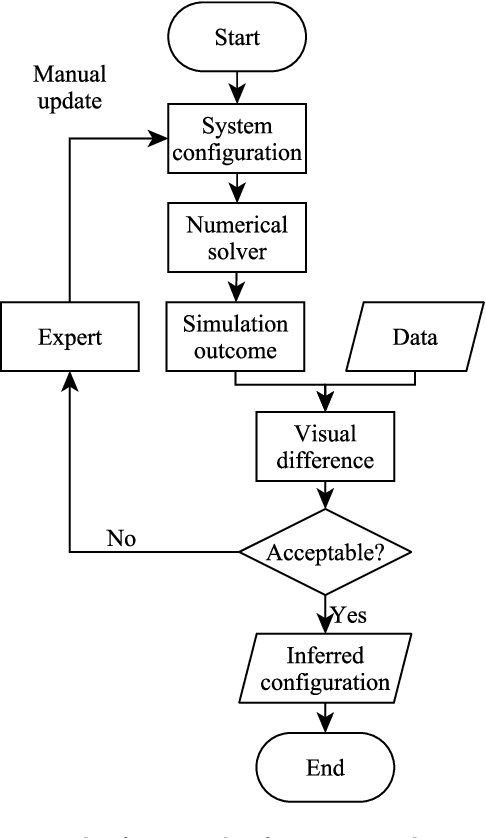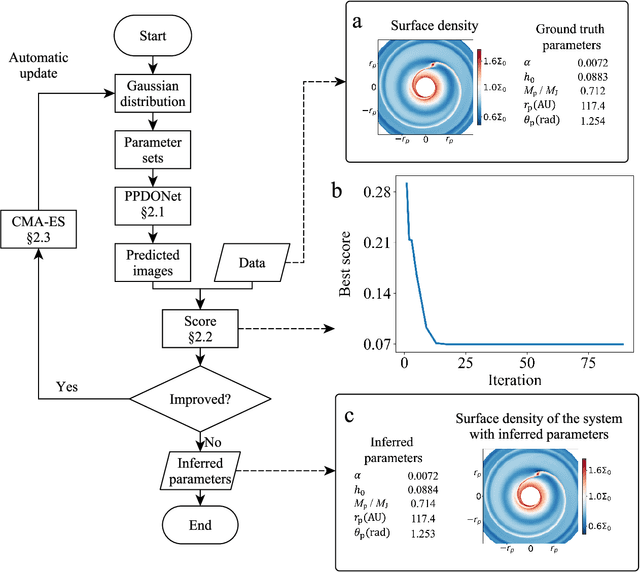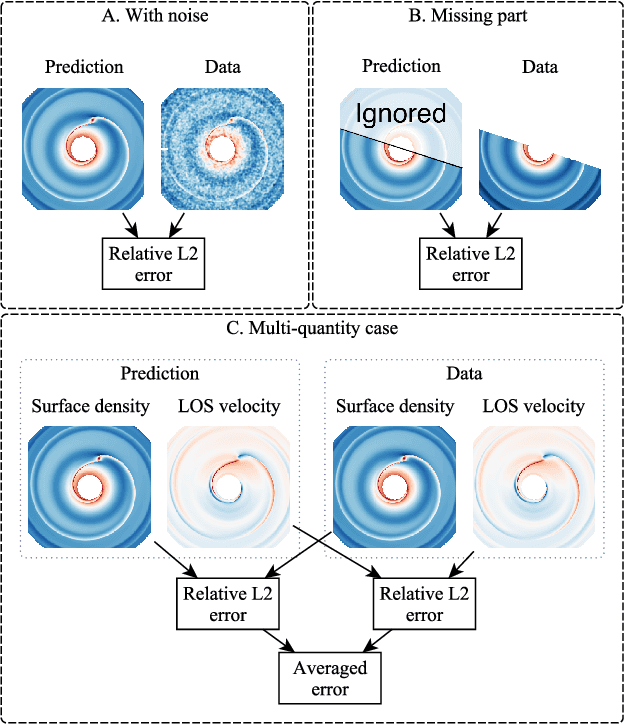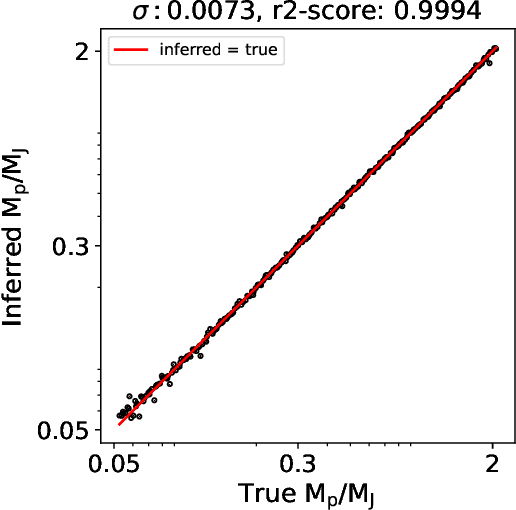Shunyuan Mao
Disk2Planet: A Robust and Automated Machine Learning Tool for Parameter Inference in Disk-Planet Systems
Sep 25, 2024



Abstract:We introduce Disk2Planet, a machine learning-based tool to infer key parameters in disk-planet systems from observed protoplanetary disk structures. Disk2Planet takes as input the disk structures in the form of two-dimensional density and velocity maps, and outputs disk and planet properties, that is, the Shakura--Sunyaev viscosity, the disk aspect ratio, the planet--star mass ratio, and the planet's radius and azimuth. We integrate the Covariance Matrix Adaptation Evolution Strategy (CMA--ES), an evolutionary algorithm tailored for complex optimization problems, and the Protoplanetary Disk Operator Network (PPDONet), a neural network designed to predict solutions of disk--planet interactions. Our tool is fully automated and can retrieve parameters in one system in three minutes on an Nvidia A100 graphics processing unit. We empirically demonstrate that our tool achieves percent-level or higher accuracy, and is able to handle missing data and unknown levels of noise.
PPDONet: Deep Operator Networks for Fast Prediction of Steady-State Solutions in Disk-Planet Systems
May 18, 2023Abstract:We develop a tool, which we name Protoplanetary Disk Operator Network (PPDONet), that can predict the solution of disk-planet interactions in protoplanetary disks in real-time. We base our tool on Deep Operator Networks (DeepONets), a class of neural networks capable of learning non-linear operators to represent deterministic and stochastic differential equations. With PPDONet we map three scalar parameters in a disk-planet system -- the Shakura \& Sunyaev viscosity $\alpha$, the disk aspect ratio $h_\mathrm{0}$, and the planet-star mass ratio $q$ -- to steady-state solutions of the disk surface density, radial velocity, and azimuthal velocity. We demonstrate the accuracy of the PPDONet solutions using a comprehensive set of tests. Our tool is able to predict the outcome of disk-planet interaction for one system in less than a second on a laptop. A public implementation of PPDONet is available at \url{https://github.com/smao-astro/PPDONet}.
 Add to Chrome
Add to Chrome Add to Firefox
Add to Firefox Add to Edge
Add to Edge